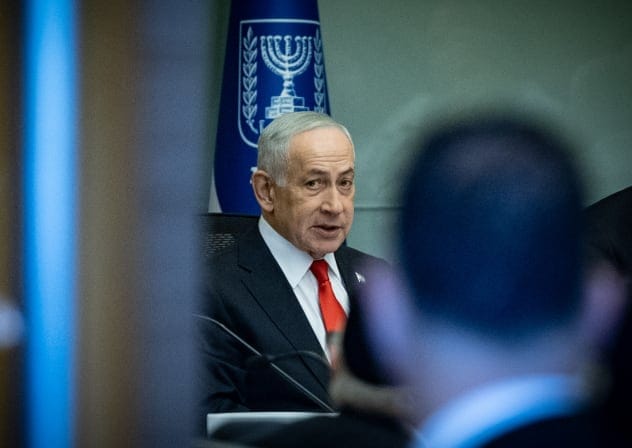Canvas for a cause: Art, music, and tzedakah in Jerusalem
Canvas for a Cause, an art auction benefiting the synagogue’s charitable fund, Keren Tzedakah, drew community members, art lovers, and supporters of social justice.

Canvas for a Cause, an art auction benefiting the synagogue’s charitable fund, Keren Tzedakah, drew community members, art lovers, and supporters of social justice.




Clarification follows Channel 13's report claiming an advisory opinion is imminent.

The woman was evacuated by Magen David Adom to Sheba Medical Center at Tel Hashomer, where she received treatment for facial and eye injuries and remained under observation for several hours.

Over 20 arrested as haredi parties condemn violence, stress it does not reflect the broader haredi community.

In his new solo exhibition, Garbian traces the delicate tension between the enduring lessons of the Old Masters and the urgency of the present

Top justices issue a conditional order, saying judge shortages are harming the public.

The proposal will further enable "a transparent and in-depth clarification of rights," which will end legal disputes and facilitate the proper development of infrastructure and market land.

According to the statement, the mother of Judge Oded Shaham passed away, and all of his hearings have been canceled through Sunday in accordance with customary bereavement leave.

The aliyah minister asserted in December that he would vote against the proposed haredi draft law even at the risk of being dismissed from the government, calling the current outline "shameful.

A new Jerusalem exhibition brings together paintings that grapple with redemption, healing, and the search for hope in the shadow of trauma.

Notably, 65 members of Kibbutz Nir Oz were murdered by Hamas during the massacre, and another 83 were taken hostage.
